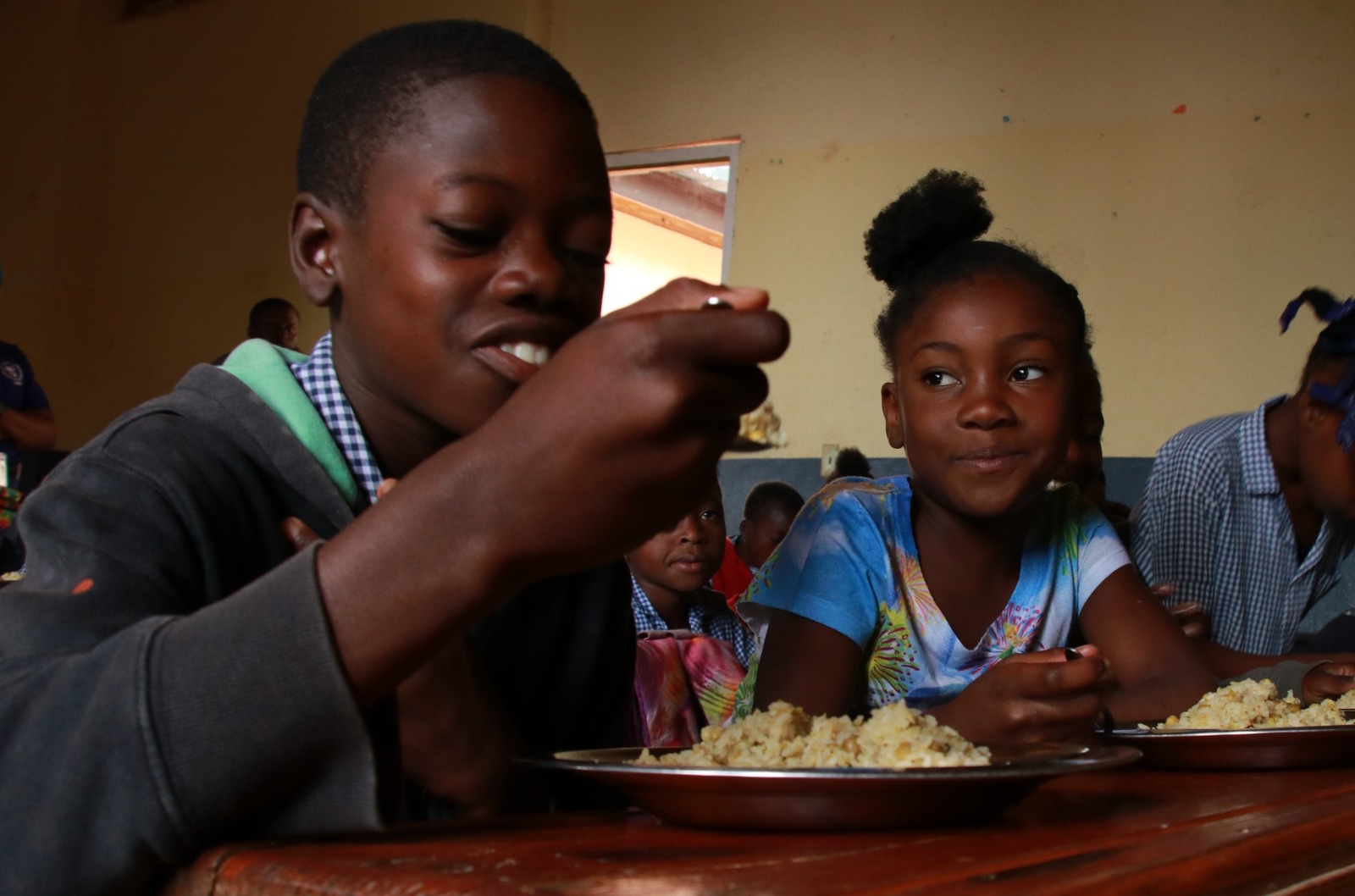Moderated by Gregg Rawlins, IICA Representative in the Eastern Caribbean States, the panel discussion enabled various Caribbean and Latin American countries to exchange knowledge and share positive experiences.

Nassau, Bahamas, 16 October 2023 (IICA) – Caribbean countries are undertaking efforts to foster healthy eating among children by strengthening linkages between small-scale farmers and schools, reported officials and specialists during an event carried out within the framework of the Caribbean Week of Agriculture in Nassau, Bahamas.
The activity was jointly organized by the Inter-American Institute for Cooperation on Agriculture (IICA) and the World Food Programme (WFP), a UN agency that was awarded the Nobel Peace Prize in 2020 for its efforts to combat hunger and foster peace in conflict-affected areas.
A four-day event, the Caribbean Week of Agriculture brought together various food sector stakeholders. IICA was one of the organizers of this conference – the premier event on agriculture in the Caribbean – which was first held in 1999. The theme of this year’s edition was “Accelerating Vision 25 by 2025”, which makes reference to the objective to reduce food imports 25% by 2025, towards which the region has been making steady progress.
Entitled “Food and Nutrition Security – Enhancing Agrifood Systems by Creating Opportunities for Small-Scale Farmers to Access Markets”, the panel discussion highlighted the fact that national school feeding programs afford multiple benefits. In addition to fostering healthy eating among children, they can also provide family farmers with access to stable markets.
Moderated by Gregg Rawlins, IICA Representative in the Eastern Caribbean States, the panel discussion enabled various Caribbean and Latin American countries to exchange knowledge and share positive experiences.
Regis Chapman, WFP representative in different countries of the region, shared the experience of school feeding programs. He noted that providing children with healthier food purchased from family farmers allows for meeting multiple objectives at once, such as reducing imports, improving food and nutrition security, shortening food supply and transportation chains, and minimizing food waste, which is a significant source of greenhouse gases (GHGs).
“While most of the Caribbean relies heavily on imports for domestic consumption, many countries have decentralized their school feeding programs by procuring locally produced food, either in whole or in part. Jamaica, St. Vincent and the Grenadines and Guyana offer good examples of this”, said Chapman.
The WFP official announced that six Caribbean countries had joined the Schools Meals Coalition, a global network that promotes actions to strengthen school meals programs to ensure that every child has access to healthy, nutritious meals by 2030.
“In the Caribbean, healthy eating is also a cultural challenge. And schools serve as a springboard to elicit changes in society’s habits”, remarked Chapman.
Healthy children, healthy adults
Kaj Tamia Archer, of the Secretariat of the Healthy Bahamas Coalition, which advises the government of The Bahamas on the prevention of non-communicable diseases, shared information on initiatives currently underway to meet food-related objectives in schools.
“The Bahamas promotes school meals that are low in sugar and salt. However, the widespread availability of unhealthy foods in the vicinity of schools, through vendors who offer sweets and drinks, represents a serious problem”, explained Archer.
“Sixty-nine percent of children in The Bahamas consume sugary drinks every day, which has resulted in a sharp increase in overweight and obesity among children between the ages of 10 and 15. We must modernize our legislation, to limit the activity of street vendors near schools. Unhealthy children are more likely to become unhealthy adults”, added Archer.
Curt Delice, IICA Representative in Suriname, discussed the role of small-scale producers in agrifood systems and IICA’s work in the region.
“Even in countries with very successful agriculture sectors, such as Argentina and Brazil, 80% of the food consumed by the population comes from small-scale farmers. Their secret is that they possess commercial structures that enable them to access markets. One of the major hurdles that Caribbean family farmers face is that they are often left out of the formal marketing circuit, so they are forced to sell their products on the roadside”, said Delice.
He also pointed out that greater access to technology would enable small-scale farmers to increase their productivity. “Most of these farmers depend on rainfall to grow their crops, so they reach markets at the same time and prices fall”.
Delice also underscored the need for training and education so that small-scale farmers can produce foods that are in demand. He further emphasized the need for consumer education, to encourage the consumption of locally grown food. “This would benefit Caribbean countries, not just economically but also from a nutritional standpoint”.
Also participating in the event was Mari Dunleavy, IICA Representative in The Bahamas and advisor to the Director General of the Institute.
More information:
Institutional Communication Division.
comunicacion.institucional@iica.int











